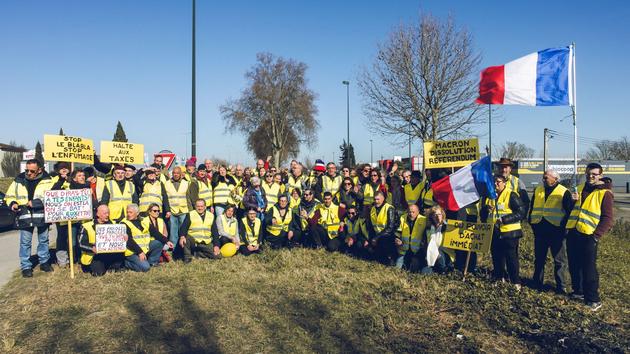No to "punitive ecology".
The cry is unanimous.
But how do you go about achieving this famous "carbon neutrality", to ensure that greenhouse gas emissions are balanced and their removal from the atmosphere by man or by his act?
In one way or another, it is a question of modifying one's behavior, willingly or by force, whether one reasons on the scale of a country or the world.
See also
Can the “carbon tax” at borders be useful for the climate?
For this, economists distinguish four possible instruments for combating CO2 pollution: regulation (by nature authoritarian), taxation (painful for taxable persons), subsidy (as a last resort, the taxpayer will pay), the creation of carbon markets. “Rights to pollute” (companies exchange them with each other, according to rules and quotas set at the outset; this is already the case in the European Union).
There is certainly a fifth way, technical progress, such as hydrogen, the fuel of the future of aeronautics.
“
The energy transition represents a tremendous opportunity for the global economy
,
”
insisted US President Biden at the opening of COP26 in Glasgow.
Let us accept this augury, but we cannot expect everything and it will indeed be necessary to resort to a mixture of incentives and regulatory and fiscal constraints.
Contrasting results
In this regard, France's record is mixed, if not contradictory, to say the least. On the one hand, for the past twenty years, the governments under four different presidents (Chirac 2000, Sarkozy 2010, Holland 2013 and Macron 2018) have all tried to introduce a carbon tax so as to moderate consumption by what economists call it the "price signal," and they've all failed. The most resounding political failure was the freezing in winter 2018-2019 of the "carbon component" of the TIPCE (internal tax on the consumption of energy products): faced with the sling of "yellow vests", the government has decided not to increase it until 2022, when he had planned to increase it gradually (this component remains at 10 cents per liter on super and 12 on diesel, for example).
The implementation of a real carbon tax therefore remains an imperative, even if the Hexagon is already one of those which tax energy the most!
But at the same time, France is doing well in the world ranking "of the carbon price" that the OECD, the Organization for Economic Cooperation and Development, established last May for the 44 most important countries on the planet ( and the most greenhouse gas emitters). The OECD calculation consisted in measuring the effective “carbon price” at the level of national economies, each of which was divided into six sectors (agriculture, industry, electricity production, housing and the tertiary sector, road transport, non-road transport). ). Taking as a reference 60 euros per tonne of CO2 (or 120 euros per tonne of carbon), which corresponds to the price necessary to meet the Paris agreements - signed in 2015 - by 2030, the OECD has classified the countries on a scale of 0 to 100% in achieving this goal.With a score of 55%, France tops the G20 (China 9%, United States 22%, Germany 41%, etc.) and in Europe only five countries do better than us (Switzerland, Luxembourg, Norway, Slovenia , Iceland).
By specifying that "the carbon price" as calculated by the OECD is made up for 93% of taxes - the rest being the price of emission allowances paid by companies - France gives the impression of being a
" good student ”…
while being far from fulfilling“ the Paris agreements ”. The implementation of a real carbon tax therefore remains an imperative, even if the Hexagon is already one of those which tax energy the most! Reflecting on the reasons for the four previous failures, Emmanuel Combet, senior economist at Ademe, regrets that each time the problem has been confined to its sole function of dissuading consumers.
"Isolated carbon tax = condemned carbon tax"
, he demonstrates in a study by the think tank In Real Time.
However, it is necessary to take into account all the social repercussions, which are considerable, and to have a true global political project.
This applies to France and to the COP26 in Glasgow.
Le Figaro
Society, health, environment, education, energy
»Discover the actors and initiatives of change

